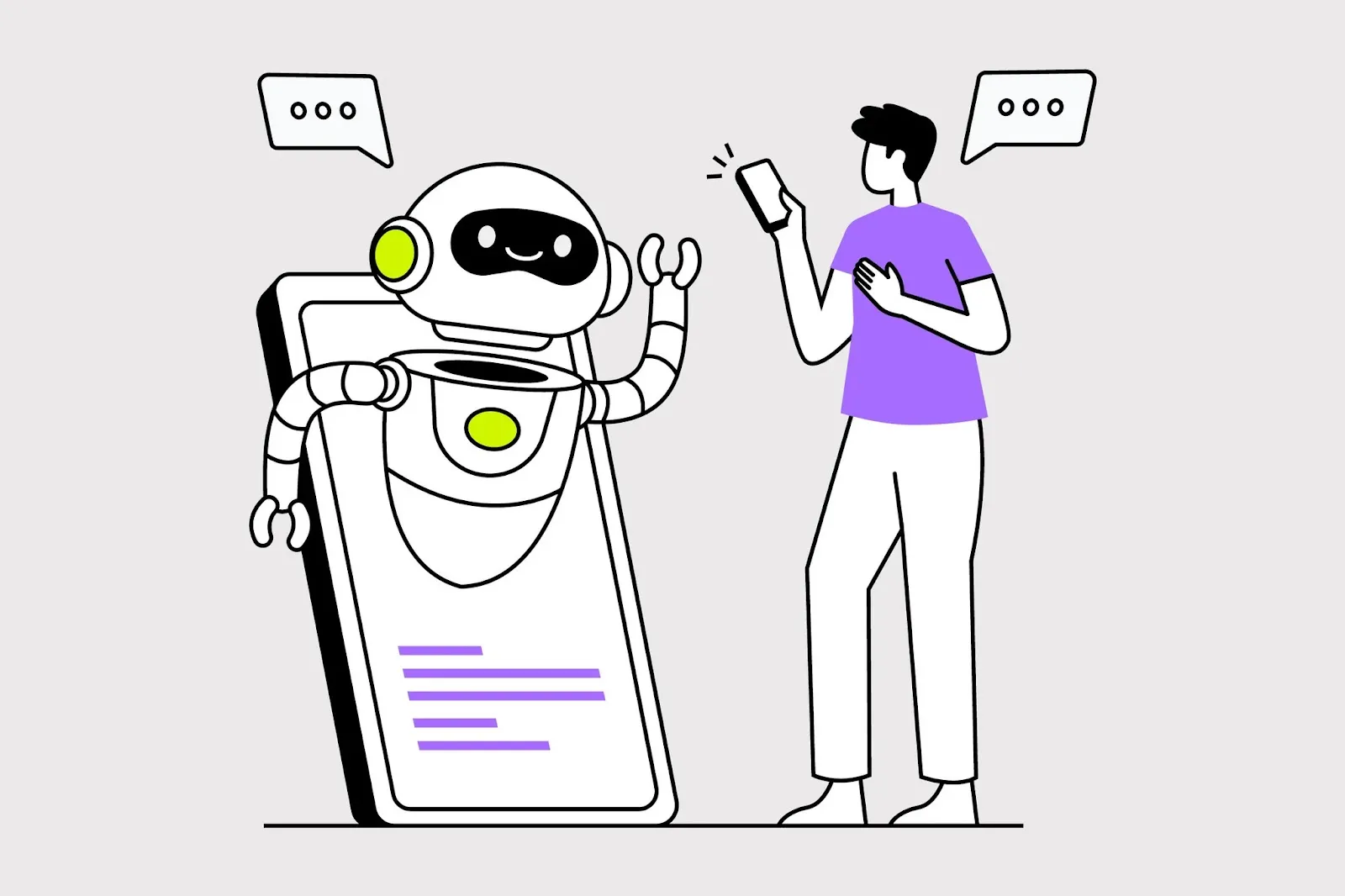What Is the Future of AI in Business Leadership? Expert Predictions

AI isn’t new, but it’s never been more present in our day-to-day lives.
Thanks to accessible tools like ChatGPT, what once felt like futuristic tech is now embedded in everyday workflows across industries of all shapes and sizes.
According to recent studies, 78% of global companies are already using AI in at least one area of their business. And 92% are planning to increase their AI investment over the next three years!
It’s clear to see that AI adoption will continue to gain traction.
But here’s what’s really interesting: the biggest shifts aren’t just happening in operations or customer service. They’re happening at the top.
Experts predict a fundamental change in what it means to lead in a world where real-time data and intelligent tools are part of your everyday toolkit.
That’s why today, we’re taking a closer look at the future of AI in business leadership – its impact, the challenges ahead, and the opportunities leaders can’t afford to miss.
How Leaders Leverage AI for Strategic Advantage Nowadays
From healthcare and finance to retail, manufacturing, and logistics, AI is becoming a core part of how modern organizations run – powering faster decision-making, cost reduction, and smarter operations at every level.

Leaders are taking advantage of AI in numerous ways:
- Smarter decision-making: Executives are using AI-driven dashboards and forecasting tools to spot trends, evaluate risk, and make informed strategic moves – often in real time.
- Enhanced productivity: AI agents (like Journey AI) now handle tasks like meeting preparation, note summarization, follow-ups, and internal reporting, freeing leaders to focus on bigger priorities.
- Better cross-functional alignment: AI helps surface internal bottlenecks, track team performance, and ensure different departments stay aligned on company goals.
- Data-backed people leadership: Tools that monitor employee sentiment, productivity, or engagement trends give leaders new visibility into team health and culture, without micromanaging.
What Is the Future of AI in Business Leadership?
For leaders, AI is quickly becoming an essential tool, shifting from a behind-the-scenes assistant to a core driver of strategy, innovation, and culture.
If you want to stay competitive, you need to adopt with AI. Here are the key trends defining AI’s role in leadership in the upcoming years:
AI as a Leadership Essential
AI has evolved far beyond a back-office automation tool. It now stands as a fundamental pillar shaping leadership styles, decision-making, and organizational culture.
Most CEOs already recognize AI as critical for boosting organizational value and driving efficiency.
So, it’s clear to see that the leader of the future is one who seamlessly combines human intelligence with AI capabilities to foster innovation and secure a competitive edge.
AI-Augmented Decision Intelligence
You’re probably drowning in data as a leader – but AI is your lifeboat. It won’t replace your judgment but will turn overwhelming numbers into clear, actionable insights.
This means executives can move beyond gut feeling and outdated reports to real-time, AI-driven decision-making that is faster, more accurate, and more predictive.
AI-powered dashboards, forecasting models, and scenario simulators will become indispensable tools for business leaders aiming to stay ahead in a rapidly changing landscape.
Even better, by handling complex data analysis, AI frees you to focus on what only humans can do best: creativity, empathy, and visionary thinking.
The Rise of AI Agents
A real game-changer in leadership is the rise of AI agents – intelligent systems that autonomously manage complex tasks across teams and tools.
AI agents are like super-efficient team members who don’t need coffee breaks and love working overtime!
They schedule meetings, take notes, send follow-ups, draft emails, and even spot problems before they become big issues.

For example, Journey AI learns your industry and preferences, helps with meeting prep, manages tasks, tracks progress, and delivers insights tailored for CEOs, C-Suite executives, and operations leads.
The future of leadership means orchestrating AI as a proactive partner, not just leveraging it as a passive tool. These agents keep things moving and let you lead smarter and faster.
Learn more about how AI Agents can help SMBs.
AI-Driven Talent Management
Want to understand your team better?
AI helps you understand your teams like never before. It personalizes coaching, finds the right talent faster, and spots potential issues early. This frees leaders from routine tasks to focus on what really matters: empathy, communication, and building inclusive workplaces.
With real-time insights into employee performance and sentiment, AI enables leaders to manage teams more adaptively and humanely. As automation handles the basics, emotional intelligence and cultural awareness become essential skills for effective leadership.
Ethical AI Governance
With great power comes great responsibility.
As a leader of the future, you’ll need to champion ethical AI governance to mitigate bias, ensure transparency, and maintain privacy. How leaders implement AI ethically will directly impact organizational trust, employee morale, and customer loyalty.
Leadership credibility will also depend as much on ethical stewardship as on business results.
Learning and Leadership Skills
Tomorrow’s leader is a hybrid: tech-savvy, emotionally intelligent, adaptable, creative, and ethical. So, investing in ongoing AI education (workshops, courses, and training) will boost your confidence and skills.
Roles like Chief AI Officer or AI Chief of Staff are emerging, so staying ahead means positioning yourself and your team to lead AI initiatives responsibly.
Organizational Transformation and Growth
AI will reshape business models and operational workflows, demanding leaders who foster innovation, champion data-driven cultures, and manage change effectively.
By integrating AI into your leadership style, you’ll accelerate innovation, boost productivity, and stay competitive in a fast-moving market.
Action Plan: What Every Leader Should Do Now
1. Upgrade Your Foundations
Before AI can bring you real business value, your organization needs the right environment to support it. Think of it like planting seeds. Without healthy soil, they won’t grow, no matter how advanced they are.
What this means in practice:
- Modernize your tech stack: Outdated systems slow everything down. You need cloud-based platforms, strong APIs, and infrastructure that can process and analyze real-time data from multiple sources. This enables the kind of speed and agility that AI thrives on.
- Break down silos: When departments operate in isolation, data gets trapped. AI is only as good as the information it has access to. Create shared data environments and integrated workflows across departments like marketing, ops, and finance.
- Focus on interoperability: Your CRM, ERP, analytics tools, and AI platforms should talk to each other without workarounds. Choose tools that are built to integrate, not ones that need constant patching or manual syncing.
2. Align and Empower Your Teams
AI isn’t a plug-and-play solution. Your people are the real drivers of transformation. If they’re not on board, even the best tech will stall. It’s crucial to develop an AI-first culture.
How to get your teams ready:
- Demystify AI: Host short, no-jargon sessions that explain AI in plain terms. Focus on real use cases (like how AI can reduce admin tasks or improve project timelines) rather than the science behind it.
- Tie AI to real impact: Show each department what’s in it for them. For example: HR will get faster candidate screening, meanwhile finance can automate expense reporting. When people see how AI solves their pain points, they’re more likely to embrace it.
- Support evolving roles: AI won’t replace jobs overnight, but it will shift them. Help your teams upskill into more valuable roles: like data interpretation, customer strategy, or creative problem-solving. Here, human input is irreplaceable.
Reminder: If your employees think AI is here to monitor or replace them, they’ll resist. If they see it as a partner, they’ll adopt it.

3. Operationalize Ethical AI
As we’ve learned, if left unchecked, some AI’s can make biased decisions, misuse data, or harm trust. Responsible AI isn’t just a checkbox for compliance, it’s a core leadership responsibility.
Build it into your operations:
- Create ethics-by-design guidelines: Don’t wait until AI is fully deployed to think about ethics. Build company-wide principles into the design, development, and deployment phases. These should cover data transparency, privacy, inclusivity, and fairness.
- Audit regularly: Use internal and third-party tools to assess your AI systems for bias, accuracy, and unintended consequences.
- Clarify accountability: Make it clear who owns the outcomes of AI-driven processes. Whether it's hiring, pricing, or marketing automation. There needs to be a human responsible for oversight and intervention when needed.
4. Choose the Right Tools for the Right Problems
Let’s be real: not every AI tool is worth your time, energy, or budget. With so much hype in the market, it’s easy to get distracted by flashy features or overpromised results.
Instead, the winning strategy is to focus on tools that solve real problems, align with your team’s goals, and deliver measurable ROI.
Here’s how to choose smart:
- CEOs, COOs, and Department Leads: AI agents like Journey AI are like your ultra-efficient right hand. For busy execs, these agents cut through the chaos, freeing you to focus on what matters: strategy, decisions, and leading your team.
- Customer Experience: AI chatbots, email responders, and support tools can cut wait times and personalize service. Just make sure they escalate properly, nothing tanks customer loyalty like a chatbot dead-end.
- Operations: Use AI to streamline forecasting, inventory, and workflow management. Machine learning can flag disruptions, optimize schedules, and boost efficiency behind the scenes.
- Sales & Marketing: Smart AI tools can identify high-intent leads, personalize campaigns, and suggest pricing strategies, all while syncing with your CRM and martech stack.
Journey AI in The Age of AI Leadership
Leadership in the future means working smarter, not harder.
Journey AI takes care of all the tedious stuff (meeting prep, notes, follow-ups, and more), so you don’t have to. It learns how you work, keeps track of what matters, and gives you insights that actually help you make decisions.
No gimmicks. No overhead. Just a tool that makes leading less chaotic and more focused. If you want to lead with clarity and cut through the noise, Journey AI’s got your back.
Ready to stop juggling and start leading? Let’s talk.
Frequently Asked Questions
AI is set to become a strategic co-pilot for leaders - enhancing decision-making, forecasting trends, and aligning teams around data-driven goals. It won’t replace leadership, but it will redefine it.
Expect AI to take on time-consuming tasks like meeting prep, performance tracking, and reporting - freeing leaders to focus on vision, innovation, and people. It will also enable real-time insights and faster strategic pivots.
AI will augment, not replace, leadership. Emotional intelligence, ethical judgment, and human connection remain irreplaceable. The most effective leaders will be those who know how to lead with AI, not compete with it.
AI will act as an intelligent assistant: streamlining workflows, surfacing key insights, and helping leaders make smarter, faster decisions. It empowers leaders to lead proactively, not reactively.

.jpg)



